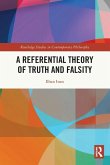This volume sheds light on the affective dimensions of self-knowledge and the roles that emotions and other affective states play in promoting or obstructing our knowledge of ourselves. It is the first book specifically devoted to the issue of affective self-knowledge. The relation between self-knowledge and human emotions is an often emphasized, but poorly articulated one. While philosophers of emotion tend to give affectivity a central role in making us who we are, the philosophical literature on self-knowledge focuses overwhelmingly on cognitive states and does not give a special place to the emotions. Currently there is little dialogue between both fields or with other philosophical traditions that have important contributions to make to this topic, such as phenomenology and Asian philosophy. This volume brings together philosophers from the relevant fields to explore two related sets of questions: First, do philosophers of emotion exaggerate the importance of our affective lives in making us who we are? Or is it philosophers of self-knowledge who misunderstand emotions? Second, what is the role of emotions in self-knowledge? What sort of self-knowledge can be secured by paying attention to our emotions? Emotional Self-Knowledge is an essential resource for researchers and advanced students working on philosophy of emotion, philosophy of mind, epistemology, philosophical psychology, and phenomenology.
Hinweis: Dieser Artikel kann nur an eine deutsche Lieferadresse ausgeliefert werden.
Hinweis: Dieser Artikel kann nur an eine deutsche Lieferadresse ausgeliefert werden.








